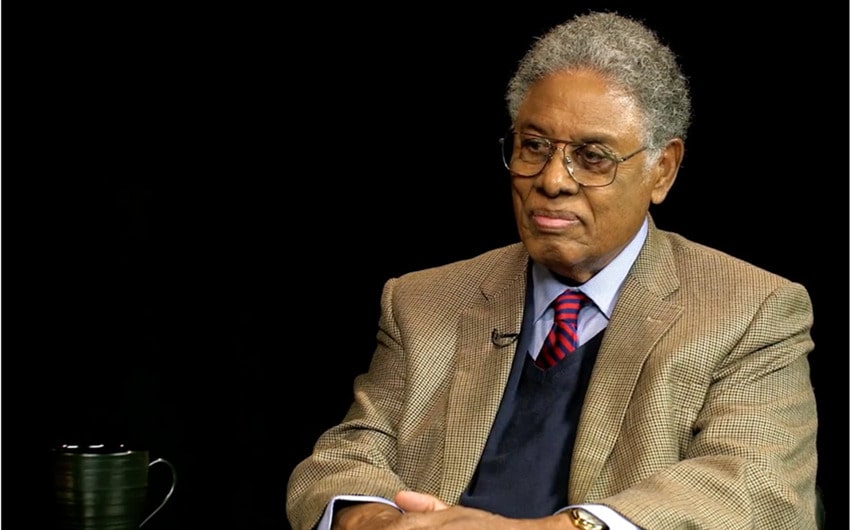Thomas Sowell’s Net Worth: Economist, Author, and Intellectual Legacy
If you have ever wondered what is Thomas Sowell’s net worth, you are not alone. Despite not being a Hollywood star or tech entrepreneur, Thomas Sowell has achieved financial stability and recognition that reflect his decades of work as one of America’s most prominent economists and public intellectuals. As of 2025, most estimates place Thomas Sowell’s net worth between $10 million and $15 million, a figure that comes primarily from his long academic career, bestselling books, syndicated columns, and media appearances. His fortune is modest compared to celebrities, but it represents the financial success of a man who built his life around ideas, teaching, and writing.
Who Is Thomas Sowell?
Thomas Sowell was born on June 30, 1930, in Gastonia, North Carolina, and grew up in Harlem, New York City. Raised in a working-class environment, he faced challenges early in life, including the death of his father shortly before his birth. Sowell’s upbringing in Harlem exposed him to the realities of urban poverty, experiences that would later shape his worldview and intellectual pursuits.
Before pursuing higher education, Sowell served in the U.S. Marine Corps during the Korean War, where he worked in photography. After his service, he began his academic journey at Harvard University, graduating magna cum laude in economics. He went on to earn a master’s degree in economics from Columbia University and later received his Ph.D. in economics from the University of Chicago under the mentorship of Nobel laureate economist Milton Friedman.
His career as a teacher, writer, and scholar would span more than half a century. Sowell taught at institutions such as Cornell University, the University of California, Los Angeles (UCLA), and Amherst College, before eventually becoming a senior fellow at the Hoover Institution at Stanford University, a position he has held since 1980.
Academic and Professional Career
Thomas Sowell’s academic career began with teaching positions that placed him at the heart of some of America’s most prestigious universities. His tenure at Cornell is particularly well known because of the turbulent years of student protests in the late 1960s, during which Sowell often spoke out about academic standards and political pressures within higher education.
At UCLA, Sowell continued to refine his research and teaching in economics, focusing on areas such as labor markets, income distribution, and the history of economic thought. However, his career truly blossomed when he joined the Hoover Institution at Stanford University. The Hoover Institution provided him the platform to engage in research and writing without the constraints of traditional academic bureaucracy.
Over the years, Sowell became widely respected not just as an economist but as a social commentator. His writings often challenged conventional wisdom, particularly in areas of race, culture, and public policy. His ability to combine rigorous economic analysis with accessible writing made him a unique figure, capable of reaching both academic audiences and the general public.
Breakdown of Income Sources
Books and Publications
Thomas Sowell has written more than 30 books, covering topics such as economics, history, education, and social policy. Some of his most notable works include Basic Economics, Wealth, Poverty and Politics, Black Rednecks and White Liberals, and Intellectuals and Society. These books have been used in classrooms and read by general audiences alike, generating significant royalties.
Basic Economics, in particular, has become a staple introduction to the subject and has been translated into multiple languages. Given the longevity and popularity of his works, royalties from book sales remain one of the largest contributors to Thomas Sowell’s net worth.
Column Writing and Journalism
For decades, Sowell wrote syndicated newspaper columns that appeared in hundreds of publications across the United States. While individual column payments may not have been enormous, the cumulative effect over decades added a reliable income stream. His syndicated columns also boosted his profile, making his books and lectures more marketable.
Academic Salary and Fellowships
During his years of teaching at universities, Sowell earned salaries consistent with tenured professors. While academia is not known for lavish pay, positions at top-tier universities such as Cornell and UCLA would have provided comfortable compensation.
His role as a senior fellow at the Hoover Institution since 1980 has been more financially rewarding. Think tank positions, especially at prestigious institutions like Hoover, often come with competitive salaries, grants, and research funding. Over the decades, this role has been a cornerstone of both his professional influence and his financial security.
Media Appearances and Interviews
Although Sowell has never sought the limelight in the way that some public intellectuals do, he has appeared on television programs, in documentaries, and in interviews that further increased his visibility. While these appearances may not have made up the bulk of his earnings, they added to his reputation and indirectly boosted book sales and lecture fees.
Estimated Net Worth in 2025
Most financial estimates place Thomas Sowell’s net worth between $10 million and $15 million. This range reflects the difficulty of assessing an intellectual’s earnings, as much of his wealth comes from royalties, long-term fellowships, and decades of accumulated income rather than flashy contracts or one-time deals.
The lower end of the estimate accounts for visible earnings such as academic salaries and book royalties, while the higher end includes the long-term value of his publications, investments, and potential real estate assets. His frugal lifestyle and decades of steady income suggest that he has accumulated significant savings and investments, contributing to this overall net worth.
Compared to celebrities, athletes, or tech entrepreneurs, this figure may seem modest, but within the world of academia and intellectual work, Thomas Sowell stands as one of the wealthiest and most commercially successful scholars of his generation.
Assets and Lifestyle
Thomas Sowell is known for his modest lifestyle. Unlike many wealthy individuals, he does not flaunt luxury cars, extravagant homes, or lavish spending. His financial stability has been achieved through careful management rather than excessive consumption.
He has lived for decades in California, near Stanford University, where his work at the Hoover Institution has been based. Property ownership in California, particularly near Palo Alto, would significantly contribute to his assets given the region’s high real estate values.
Sowell’s lifestyle choices reflect his intellectual values—emphasizing substance over style. His wealth is tied not to material possessions but to his published works, his role as a teacher and mentor, and his contributions to public discourse.
Influence and Intellectual Legacy
Beyond his financial standing, Thomas Sowell’s true wealth lies in his influence. He has been a leading voice in economics and political philosophy for decades, influencing debates on issues ranging from minimum wage laws to affirmative action. His work has been cited by policymakers, journalists, and other academics.
Sowell’s books have educated millions of readers worldwide, making economics and political theory more accessible to everyday people. His ability to translate complex ideas into plain language has broadened his reach and ensured a lasting intellectual legacy.
His influence has also translated indirectly into financial capital. The continued demand for his books and the enduring relevance of his commentary mean that his work remains profitable long after initial publication. This unique combination of intellectual impact and financial success is rare and makes Sowell an exceptional figure in American scholarship.
Featured Image Source: quillette.com







